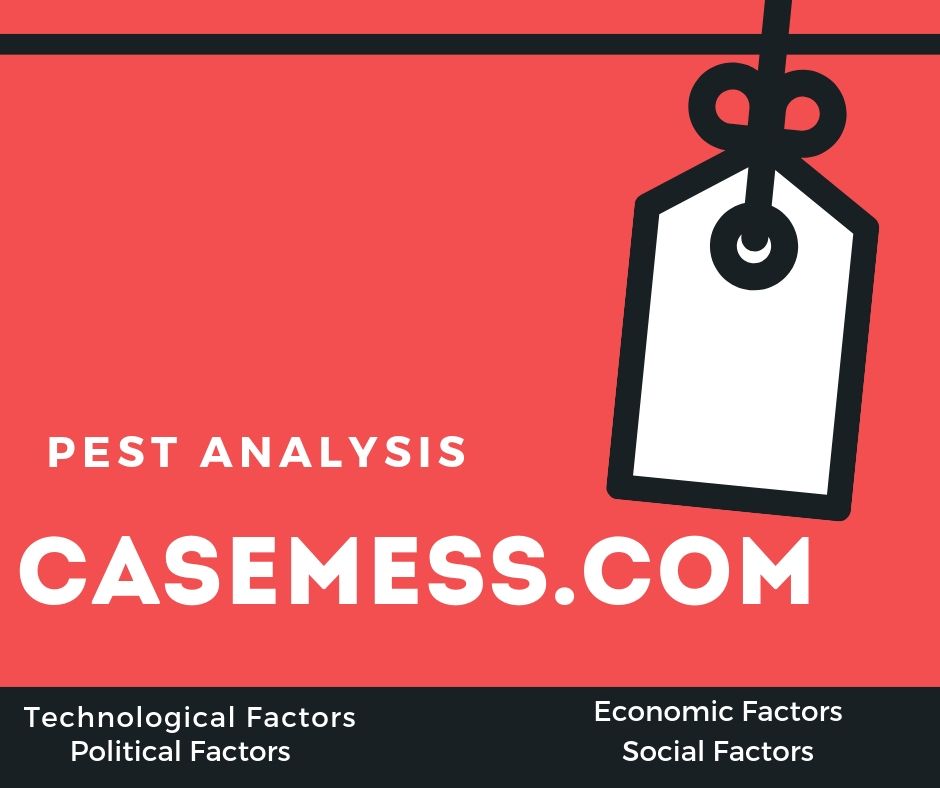Bristol Myers Squibb Company Managing Shareholders Expectations Case Study Help
Home >> Harvard >> Bristol Myers Squibb Company Managing Shareholders Expectations
Bristol Myers Squibb Company Managing Shareholders Expectations Case Help
The structure of Bristol Myers Squibb Company Managing Shareholders Expectations Case Study Analysis remained in the year 1935, the time when Yunosuke Aoki-- father of Rocky (the existing vibrant president of Bristol Myers Squibb Company Managing Shareholders Expectations Case Study Help) opened his first restaurant chain in the Japan. It was named so when a little sized flower red in color grew near the restaurant's front door. In 1959, Rocky, during his trip to the United States explored more opportunities in the United States of America as compared to Japan. After spending a duration of three years, he had much better analysis of the dining establishment market of the United States. In 1958, he was worried about the cost rising and increasing competition.

In 1963, Rocky opened his very first unit to make an effort to use what he had actually learned in the West Side with his preliminary savings of about $10,000 obtained $20,000. This was repaid within a duration of 6 months. In 1964, opening a simple unit with 40-seat in the midtown Manhattan, Bristol Myers Squibb Company Managing Shareholders Expectations Case Study Analysis grew to fifteen systems chain through the nation and a net worth of about $12 Million.
By 1972, it was actually a steakhouse with variation through the way food was cooked in front of consumers particularly by the Japnense chefs and the design of the system was realistically detailed like the Japanese nation. Among fifteen systems of Bristol Myers Squibb Company Managing Shareholders Expectations Case Study Analysis, 9 of them were at company-owned locations and 5 were franchised.
Problem Statement:
Bristol Myers Squibb Company Managing Shareholders Expectations Case Study Solution had actually been rather various and is tough to intimate, but the thing it did not have included the high expense of the items which was due to the usage of products from the Home of Japan and the involvement of total personnel of native Japanese in the store. The service were time-consuming hence lack quick service reactions with a long time of queuing.
Operations in the organizational success:
Dining space:
Usually, the regular dining establishment requires 30 percent of the total space of the dining establishment as the house back. While, Bristol Myers Squibb Company Managing Shareholders Expectations Case Study Help consisted of just 22 percent of the total unit space as your house back which includes workplace, dressing spaces of employees, dry and cooled storage and areas of preparation. This was a significant boost in the floor area proportion devoted to dining area to be efficient.
Hibachi table arrangement:
The elimination of standard kitchen need with the plan of hibachi style provided Bristol Myers Squibb Company Managing Shareholders Expectations Case Study Solution an uncommon attentive service quantity and kept the expense of labor at the gross sales of about 10 to 12 percent. This relied if the system was at full volume.
Reduction in menu:
Through decrease in the menu to just three simple entrées of Middle America that included Shrimp, Chicken and Steak. There had been significant storage of food and practically no food waste. This had actually cut the expenses of food by 30 to 35 percent of the sales of food depending upon the meat rate.
Historical Authenticity:
The decorative lights, artifacts, beams, ceilings and walls of Bristol Myers Squibb Company Managing Shareholders Expectations Case Study Solution were all from Japan. The product of structure was collected from old houses which were taken apart in a mindful manner and delivered in pieces to the U.S. where reassembling was done by among his daddy's 2 teams of carpenters of Japan.
Site Selection:
Due to the lunch break company significance, one fundamental principle of Bristol Myers Squibb Company Managing Shareholders Expectations Case Study Solution was its selection of website i.e. high traffic. Lease was normally at 5 to 7 percent of sales for the location of about 5000-- 6000 square foot for the area of floor. A lot of the units of Bristol Myers Squibb Company Managing Shareholders Expectations Case Study Analysis were found in the business districts with an easy access to the areas of residency.
Advertising Policy:
One of the essential factor in the success of Bristol Myers Squibb Company Managing Shareholders Expectations Case Study Help was its considerable investment in public relations and innovative marketing. The financial investment of company of about 8 to 10 percent of its gross sales in order to be friendly to public. Bristol Myers Squibb Company Managing Shareholders Expectations Case Study Help used totally various technique for ad.
Training:
The chefs of Bristol Myers Squibb Company Managing Shareholders Expectations Case Study Help were an excellent essential to its success as all the chefs were extremely trained. All the chefs were certified, native Japanese speakers, single and young meaning that they had actually completed their official apprenticeship of three-years. They were then provided with a course of 3 to 6 months in period in the English language about the manners of American style and the Bristol Myers Squibb Company Managing Shareholders Expectations Case Study Help cooking design which was primarily showmanship in Japan.

Training chefs was an ongoing procedure in the United States. The chefs were not typically concerned with resignation of their task due to the factor which consisted of the possibility to rise in the Bristol Myers Squibb Company Managing Shareholders Expectations Case Study Solution operation of America in comparison to the rigid hierarchy on the basis of education, age and class they may experience in Japan.Similarly, other factor consisted of the Bristol Myers Squibb Company Managing Shareholders Expectations Case Study Solution's paternal attitude which took forward all the employees.
As an outcome, workers turnover in the United States was rather low, nevertheless, many ultimately gone back to Japan. For that reason, for complete gratitude of success of Bristol Myers Squibb Company Managing Shareholders Expectations Case Study Help, the unusual combination of paternalism of Japan in the setting of America had actually appreciated.
Imitation:
The dining establishments of Bristol Myers Squibb Company Managing Shareholders Expectations Case Study Help embraced precise and well-defined approaches throughout the selection of websites and chefs training which assisted the company in decreasing the average time of dinner turnover and the distinct mix of paternalism of Japan in the setting of United States of America that made it tough for other organizations to intimate.
Winning Strategy:
Effective Training:
Bristol Myers Squibb Company Managing Shareholders Expectations Case Study Analysis invested greatly on the programs of training for the chefs:
• Training of official apprenticeship for a duration of three years with certification in the cooking design of Bristol Myers Squibb Company Managing Shareholders Expectations Case Study Solution.
• Three to 6 months course when it comes to the American good manners teaching and training in English language.
• Usage of training program as a continuous procedure to be followed.
Employee Satisfaction:
Satisfaction of employees as the ecosystem for support available for every worker:
• Complete satisfaction of employees increases development possibilities of performances of both employees and company.
• Paternal attitude-- functioned as the secret to the bonding on basis of culture with effective management.
• Offering staff members with handsome wages and rewards such as strategies of benefit.
• Supplying employees with intangible advantages like security of task and employees' well-being.
• Pride of workers functions as the key consider the inspiration of staff members.
Effective and Aggressive Marketing:
Financial investment of Bristol Myers Squibb Company Managing Shareholders Expectations Case Study Help at significant level in the upkeep of public relations and development of advertisement:
• Investment of about 8 to 10 percent in advertising from the gross sales.
• Company lead in regards to its uncommon technique of marketing.
• Ad was extraordinary, modern, off the wall visuals in the advertisement.
• Bristol Myers Squibb Company Managing Shareholders Expectations Case Study Analysis considerably preserved its policy word of mouth in a constant manner.
Customer Satisfaction:
Research study of market to evaluate the prospective customers and their expectancy:
• Quality of food drive the customers' fulfillment the most i.e. usage of food of prime grade.
• The crucial motorists functioned as the factors of clients' fulfillment was primarily atmosphere and service.
Problem Analysis:
Franchise
• Financiers of the business were not experienced in regard to grow the restaurant organisation.
• Lack of awareness about the culture of Japan and cooking design of Bristol Myers Squibb Company Managing Shareholders Expectations Case Study Help.
Investors do not have control in regards to management of operations.
Expansion
• Funds-- objection to get loans from institutions of financing such as banks.
• Company dealt with insufficiency in the extra qualified staff.
Efficiency is considered good however is limited with availability of only two carpenters.
Operation
• Providers of the company were lengthy as there were no choices of quick service.
• The cost of advertisement was rather high and specific focus of company towards food.
• The services variation was restricted to the main United States food market.
• The menu of the company does not have range of food as the menu was limited.
Improvements:
Expansion
• For the growth of business, there is a requirement to explore possible regions such as residential area areas.
• Joint ventures are considered more liable in contrast to franchise such as with the chain of global hotel.
• Bristol Myers Squibb Company Managing Shareholders Expectations Case Study Help can significantly take funds from the organizations of financing as cash flows was not a matter of concern.
• Growth of company in the international market like market of South East Asia with anattention of middle to upper class department.

Development of brands with varying worth proposition like Bristol Myers Squibb Company Managing Shareholders Expectations Case Study Solution signature, Bristol Myers Squibb Company Managing Shareholders Expectations Case Study Solution and Bristol Myers Squibb Company Managing Shareholders Expectations Case Study Solution Oriental Express.
Cost
• Through the growth of organisation in the suburban area areas, there will be reduction in the website cost.
• Cutting down of extra cost of advertisement.
• Usage of regional material in the development of developing to provide it a shape of architecture of Japan.
• Usage of locally readily available workforce for the work of carpentry.
• Purchase of design material wholesale total up to get more discounted rates of the products.
Structure of workshops in developing nation such as Indonesia or Thailand for production of decor craft of Japan as new organisation line.
Operation
• Introduce operations with quick services in order to cater the division of young people.
• Bristol Myers Squibb Company Managing Shareholders Expectations Case Study Analysis can use up add-on company in order to offer traditional things of Japan in a committed restaurant areas.
• Bring variation in the menu such as addition of sushi-on-the-go, udon, robatayaki.
• Intro of appealing plans for old individuals and women.
• Introduction of complimentary card of subscription to use bundle of special offer to its loyal clients.
Building of local center for training particularly to train regional staff.
| Executive Summary | Swot Analysis | Vrio Analysis | Pestel Analysis |
| Porters Analysis | Recommendations |
